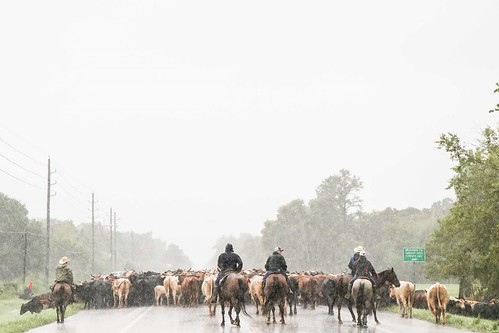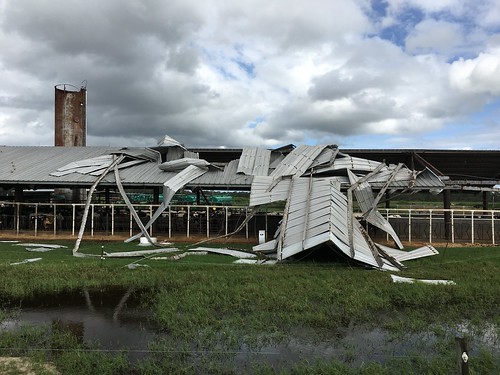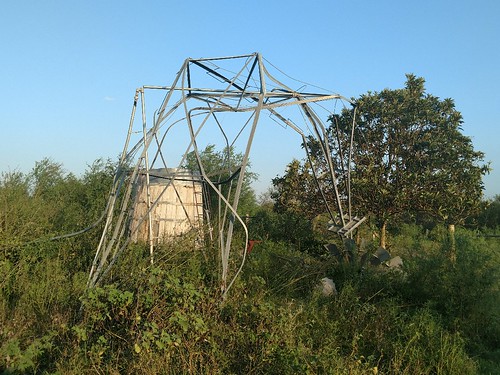
Just as families, friends and communities came together to respond to damages that occurred during the hurricanes of 2017, so did government agencies.
When hurricanes Harvey, Irma and Maria made landfall, the Farm Service Agency (FSA), Natural Resources Conservation Service (NRCS), Risk Management Agency (RMA), Rural Development (RD), and Animal and Plant Health Inspection Service (APHIS) worked together, along with the Federal Emergency Management Agency (FEMA) and other intergovernmental groups, to provide information and recovery resources to agricultural producers who experienced losses.
USDA offers a variety of programs and services to help people in all walks of life that have been hard hit by disaster events ranging from livestock disaster assistance programs, crop insurance, conservation efforts, housing assistance and animal quarantine and disease response.
With office closures due to lack of power and damage across all impacted areas, information phone lines were set up for producers in Florida, Georgia, Puerto Rico, Texas and the Virgin Islands. Employees from other offices and USDA teams from other states went to work to assist farmers and ranchers.
Christy Marshall, a farm loan specialist based in Gainesville, Florida, was one of the state office employees to travel to the Miami-Dade FSA county office to help with the daily lines of producers seeking assistance. Over the course of three months, Marshall spent a month and a half in the Miami office.
“From farm structure destruction to the crop losses, there was devastation everywhere you looked,” Marshall said. “The overwhelming need of farmers down there outnumbered the county office staff. It was normal to have 10 to 15 producers waiting for service and we were trying to help any way that we could, sometimes even giving impromptu presentations in the lobby while they waited.”
In Texas, the USDA Service Centers in Wharton and Jackson counties were temporarily closed due to damage. Employees from these offices were able to serve producers by working out of neighboring county offices. A few FSA employees were personally displaced by the storms. To help out, FSA employees from other regions in Texas volunteered to work in those areas to provide uninterrupted service to producers, allowing displaced employees to take care of personal matters.
A joint field office was assembled in Austin, Texas. Several USDA agencies loaned employees to staff the office. Employees provided support functions in their area of expertise. FEMA representatives in the field would look to USDA staff for guidance on agriculture, conservation and natural resources and rural housing needs.

USDA employees also helped to staff FEMA disaster recovery centers in Texas and Florida. Billie Hamrick, FSA program technician from Madison County, Florida, worked for a month in a center in Orlando, where she helped the Economic Development Administration respond to area needs.
“It was one of the best work experiences I've had while working with FSA,” said Hamrick. “I worked with people from many different agencies and departments, people from all over the United States, who used their areas of expertise to help people during that time of need.”
Employees also travelled to Puerto Rico to help with FEMA operations there. Proficient in Spanish, Latawnya Dia, FSA public affairs specialist based in Washington, DC, worked a six-week detail in San Juan.
“I worked with USDA and the Puerto Rico Department of Agriculture to develop a communications and outreach strategic plan that is currently underway,” Dia said. “These efforts are enabling USDA employees to better provide outreach and assistance.”
As recovery efforts continue and producers seek guidance, USDA agencies continue to work with local partner organizations and host producer meetings throughout Florida, Georgia, Puerto Rico, Texas and the Virgin Islands. Over 100 meetings have been held to inform farmers and ranchers of available assistance.
In every disaster, USDA staff in the regional, state and county offices stand ready and eager to help. For more information about USDA’s disaster resources, visit https://www.usda.gov/topics/disaster.

